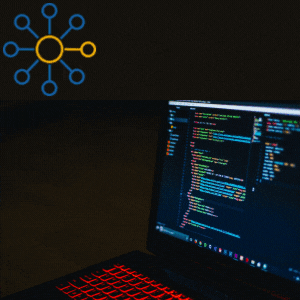Do you ever wake up with crusty eyes in a light sweat thinking “what the hell was that dream about and why was all that junk in my brain?” Well, if artificial intelligence (AI) is anything to learn from, there’s a good reason your dreams can be so vividly surreal.
Erik Hoel, a research assistant professor of neuroscience at Tufts University, has put forward a new hypothesis of why we dream inspired by the way certain AI works.
As reported in the journal Patterns, he argues that surreal dreams help our brains to fine-tune their perception of our everyday reality by presenting us with unexpected and chaotic stimuli. In effect, the brain is showing a weird distortion of reality to help us better understand our “real” waking reality.
“The hallucinogenic, category-breaking, and fabulist quality of dreams means they are extremely different from the ‘training set’ of the animal (i.e., their daily experiences),” Hoel writes in the study. “It is the very strangeness of dreams in their divergence from waking experience that gives them their biological function.”
This idea is partially inspired by AI and the training of deep neural networks. Neural networks are a series of algorithms that are loosely modeled on the way the human brain works. The neural network is fed a load of data, such as a bunch of photographs, which it will pass through a number of different nodes. Through this process, it will start to pick up on relationships and patterns between the day. For example, an object recognition system will be fed thousands of labeled images of people, traffic lights, and motorbikes, etc, and it would recognize visual patterns in the images that consistently match the labels.
However, AI can become too familiar with the data it’s trained on. This can lead to overfitting, in which the AI will attempt to jam any new data (even anomalous or misleading data) into the rigid pattern it has established. To overcome this, researchers often inject some unexpected “chaotic” data into the mix, effectively to keep the AI on its toes and ensure it doesn’t become too rigid in its understanding of the data.
Perhaps, Hoel speculates, this is what’s occurring when we have weird dreams.
„If you look at the techniques that people use in the regularization of deep learning, it’s often the case that those techniques bear some striking similarities to dreams,” Hoel explained in a statement.
„Life is boring sometimes,” added Hoel. „Dreams are there to keep you from becoming too fitted to the model of the world.”
Many people noted during the early stages of the COVID-19 pandemic that their dreams became more surreal. If we take Hoel’s new hypothesis, it could be argued that this was because our day-to-day reality during lockdown had become increasingly unstimulating and repetitive. The wild dreams could be seen as an attempt to counteract this banality and provide the brain with some refreshing stimulation.
Of course, Hoel’s idea is only a hypothesis and it hasn’t been rigorously tested yet (it’s hard to know how you could even test such an idea). Nevertheless, the study is an interesting demonstration of how our increasing understanding of AI is starting to inform and shape our understanding of the wider world.
„There’s obviously an incredible number of theories of why we dream,” says Hoel. „But I wanted to bring to attention a theory of dreams that takes dreaming itself very seriously–that says the experience of dreams is why you’re dreaming.”



